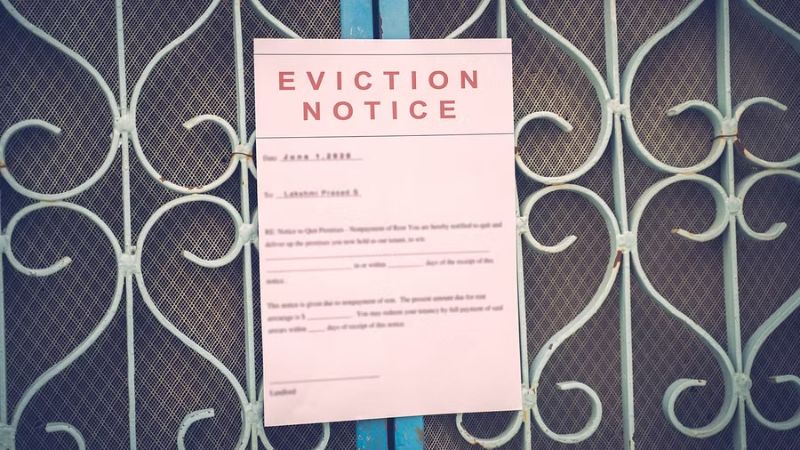For many obvious reasons, Wayand has been in the news for the last 5-7 years. More recently, it came to light due to Congress leader Priyanka Gandhi’s candidacy in by-polls. However, the constituency is now in the crosshairs of the draconian Waqf Board. Shockingly, this time the protest against the Waqf board’s excesses is being led by none other than the members of the Muslim community who have fallen prey to land grabbing.
Recently, the Kerala Stata Waqf Board issued an eviction notice to five households at Thavinhal grama panchayat in Mananthavady taluk in Wayanad’s Thalappuzha. Surprisingly, these five families include four Muslim families and a Hindu family.
The Waqf board, notorious for encroaching on any land it sets its eyes on, has alleged that these families have encroached upon land near a mosque. It even issued a date for submitting documents, which is November 16 (today). It has asked them to be present in an online hearing on November 19.
Strikingly, all these five households who got eviction notices have legal title deeds and have been paying taxes for years. In fact, records from Thavinhal panchayat indicate that one building on the contested land has documentation dating back to 1948.
It must be noted here that the Waqf Board issued eviction on the complaint filed by the managing committee of Hidayathul Islam Jamaat Mosque, which reported that 4.7 acres of its land had been encroached. The president of the mosque committee Abdul Nassar claimed that the community donated the land to support the mosque, with a title deed executed in 1963.
1963 is what he claimed but as stated above, one family has a record till 1948. Had it been for the judiciary, the case of the mosque would have been junked until now, but because the accused in the case is Waqf Board, the facts were undermined and an eviction notice was issued.
Also Read: UPA government was hell bent on selling the entire Delhi to Wakf Board
The land grab in the name of Waqf is a reality and the process continued silently because the board and the provisions of the act are essentially against the spirit of the Constitution.
Waqf Board claims land belonging to Christians and Hindus, with the latter being the biggest victim of pan-India
Apart from Wayanad, Kerala’s Ernakulam is also in light of the land grab. Known as the Munambam waqf land dispute, the dispute has jeopardised the fate of nearly 600 families with 400 of them being Christians and the rest being backward Hindus. The Waqf Board has staked claim over 404 acres of land in Ernakulam district’s Munambam coast.
This all started in 1902 when the Royal family of Travancore leased the land to some Abdul Sattar which passed on to Sattar’s kin and later to Farooq College and in 1950, a Waqf deed was signed. The most important issue here is that these families had occupied the land even before that.
Since no one had ownership and the king used to be the only owner, he leased the land. But, the question is how can the leased land be donated for Waqf? Also, the families also have a legal claim to the land as historically they have been the original occupant of the land. However, the Waqf Board has usurped the land incessantly without facing legal wrath.
Also Read: High Court junks Waqf board’s plea, orders the installation of Rani Lakshmibai statue
The land grab under Waqf has been going on silently in many parts of the country. The example from Karnataka is also a case study where the farmers were getting eviction notices after govt officials “altered” the mutation records and classified 1,200 acres of land as “Waqf Board assets”.
The glaring breach of law was admitted by the state government as a “mistake”. Facing mounting pressure amid the escalating row over the Waqf Amendment Bill and JPC Chair Jagdambika Pal’s meeting with affected farmers, the government said that it would withdraw the notices.
The main issue that must be focussed firmly is the silent crusade by the Waqf Board to hoard as much land as it wants. One of the most startling cases of Waqf board’s illegal encroachment came to light from Tamil Nadu where it had staked a claim on an entire village in Tamil Nadu including a Hindu temple – Sundareswarar Temple which is over 1,500 years old.
Also Read: High Court sought justice after its own land was snatched by Waqf Board
While plenty of cases have already come to light, the true extent of the Waqf board’s illegal occupation is yet to be fully comprehended. While several Hindu organisations, legal experts, and politicians have called for the complete abolition of all Waqf Boards, a draft legislation is expected to be passed in the upcoming Winter Session of the Parliament within a fortnight. The draft legislation aims to put a leash on the draconian powers of the usurping board which has become the third largest “landholder” in the country only after the Railways and the Defence.
